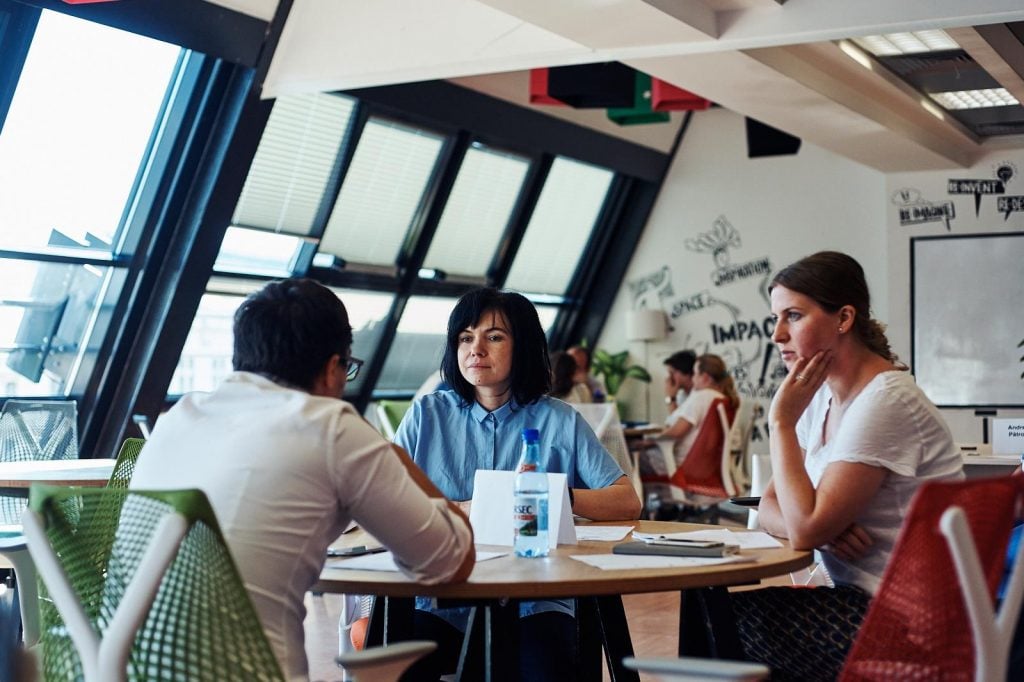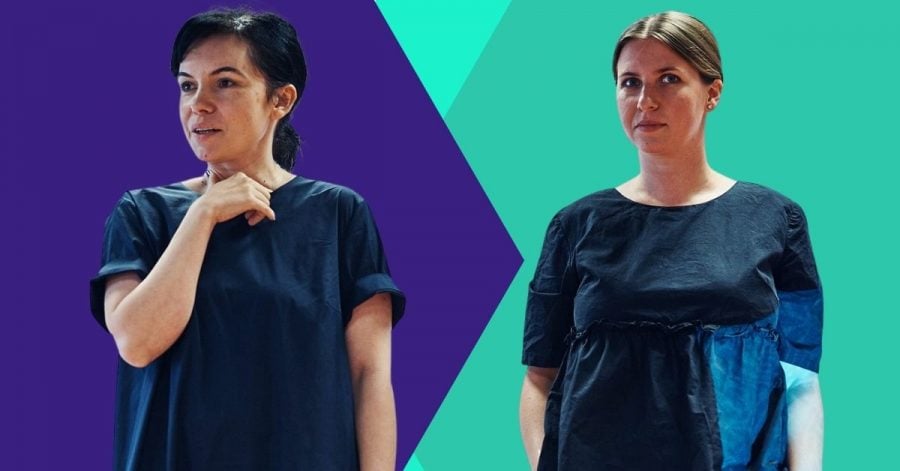Adriana and Andreea are best friends. They met in 2009 when they worked together for Andreea’s ALOMODA fashion blog in Romania. More than ten years, marriages, and a few kids later, they also share a business. In 2018 Adriana and Andreea co-founded Garderoba Infinita, a circular fashion startup that aims to change the way women do shopping.
The Recursive met with them to talk about how they balance work, life, and friendship. We also inquire about when a person needs to set clear boundaries if mixing friendship and business.
The importance of a co-founder’s agreement
The two co-founders believe that it’s important to start a project with someone who shares the same drive to grow the business but also someone you would love to take to dinner or go on a holiday with. Adriana thinks that Andreea is the number one person to co-found with.
“We trust each other very much – as friends and professionals, so it is very natural for us to have this urge and desire to work together,” Andreea adds.
They did, however, sign a co-founder’s agreement. They outlined not only the shares and the money, but also processes, values, and responsibilities.

In the first year, their goal was to minimize the risks and the costs. For Adriana, who was working full-time on another online shop, the startup time was in the evening, after putting the kids to bed. She didn’t make much progress. Andreea’s flat became storage for all the clothes.
“Our husbands were pretty tolerant, literally making room for this business in our lives,” says Adriana.
Now that the startup is fully operational, Andreea shares she has no working hours or days. She works all the time – in the evenings, on vacations, while commuting to the countryside on weekends. She says she is aware of always walking on thin ice while doing the balance dance. “I cannot put limits for now, but it’s a lifestyle our family got used to,” Andreea adds.
They say that co-founding a business brought them closer because they depend on each other. “It taught us about our limits, strengths, and wishes,” Adriana says.
At first, they split the “To-Do list” in half so that they could cover everything that needed to be done and each one of them had ownership of certain areas. But as the business grew, Adriana took responsibility for all the operational tasks and Andreea became more of a consultant.
“I ask for her feedback, relying on her valuable insights, for any new strategic steps,” shares Adriana. As they both have children, this usually happens via email.
Adriana Ancuta majored in political marketing. She went on to become a manager of various fashion brands. In 2019, she put aside her corporate life for Garderoba Infinita. Andreea Cartu studied public relations. She worked in various companies in fashion and beauty, but the one that shifted her mentality was Netflix, where she is currently Head of social media in Romania.
“It is a different experience due to its culture as a company. It taught me to think, structure ideas, and strive for creative excellence. Last, but not least, about giving and receiving feedback, being transparent, and candid. Values to live by, not only to work by,” shares Andreea about her work in the international streaming service.
The hardest test for a founder
The most difficult period of the business journey for the two best friends, up to this point, was when the pandemic hit. It was the most intense time for Adriana. She worked full-time for a year without getting paid. The Garderoba Infinita shop was closed and a new investment round was postponed. She says this was the hardest test for a founder. She was fearing what she could lose instead of witnessing the small wins.
“In my case, the focus was on surviving instead of growing the business. Now, after realizing that, I am happy to announce that our scaling plans are back on track and we will launch our franchise network soon,” concludes Adriana.







